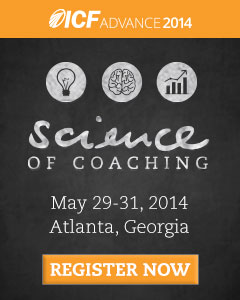Managing Progress and Accountability is an ICF Core Coaching Competency that is frequently missed when coaches apply for certification, according to ICF certifiers.
I could be wrong, but I think the name, itself, confuses coaches. It sounds like the coach literally manages the client and holds them accountable to achieve their goals the way an employer might, but that's not what helps clients progress, and it's really not what ICF certifiers are looking for.
It's time somebody told you the secret of motivation and it has nothing to do with holding your clients accountable...
Here's why: Have you ever caught yourself being stubborn with someone (your friend, sibling, spouse, perhaps) about something you really wanted to do but you were only willing to do it your way or not at all? Or has someone ever told you that you need to change something about yourself, and even if you agreed with them, you didn't do it? Or do you ever ask for advice and then don't follow it?
If yes to any of these, you're normal. People naturally resist doing what others tell them to do and unless that other has something important to hang over their head, like their job, they often won't do it even if they want to.
We all get a little negative in these situations and that negativity has power over us that most people underestimate.
Here's an example: An SCM graduate just posted a meme on Facebook that said she never shares memes that say, "I bet I won't get even one share," even if she otherwise likes the meme. I don't share them, either. In fact, I did an impromptu poll once on my Facebook feed to see if others shared them. Nobody did. They're annoying.
Subtle levels of negativity, defensiveness, resistance, anxiety, or irritation of any type trigger the fight, flight, or freeze response unconsciously, which in turn delivers a cocktail of stress hormones, like cortisol, which can stay in the blood stream for quite a while and hold the client back from taking action. Essentially, they freeze.
So if a coach presumes to manage a client in any way, especially by checking up on them, or requiring the client to check in with the coach, or in any way holding them accountable, there's a good chance that will backfire. Don't do it.
What does work? A recent article by researcher, Richard Boyatzis and colleagues, at TrainingIndustry.com, offered five possibilities that have been found to help people change. Boyatzis is well-known for his research and teachings on coaching, emotional intelligence, and leadership. His change theory of positive emotional attractors (PEAs) v negative emotional attractors (NEAs), which roughly translate to positivity v negativity in positive psychology terms, helps explain why some approaches to change don't work while others do.
In a nutshell, change is stressful and that releases stress hormones that trigger the fight, flight or freeze response.
Something or someone needs to continually bring the client back to positivity so negativity doesn't prevent them from proceeding. That someone is often the coach.
Forcing or requiring people to do things increase stress so pushy coaches often fail.
Goals, alone, aren't motivating unless they are aligned with what matters most to the client, such as their personal values, vision, mission, calling, dream, passion, or life purpose. Any goals, especially challenging goals, that aren't aligned with the client's bigger picture, are unlikely to provide sufficient positivity to carry the client forward.
Growth and Transcendence aren't just a byproduct of great coaching.
They are necessary ingredients that help our clients reach their goals. That's why the IAPPC focuses on them instead of accountability. So, we need to help link their goals to what really inspires in order for them to succeed.
To learn more about the science of coaching and prepare yourself to become a Certified Positive Psychology Coach®, join the International Association of Positive Psychology Coaches and attend our series on the nine NEW Positive Psychology Coaching Skills, from Optimum Positivity, to Goals & Achievement, and Growth & Transcendence. These skills are based on research and increase effectiveness of coaching.
Membership in IAPPC is affordable. We will be certifying current members for free through 2022.







.jpg) Apparently, the International Coach Federation (ICF) agrees with me that science is
Apparently, the International Coach Federation (ICF) agrees with me that science is

